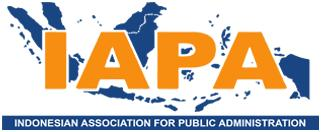Building Citizen Satisfaction Towards E-Government Services: A Conceptual Framework
Abstrak
Kata Kunci
Teks Lengkap:
PDFReferensi
Abu-Shanab, E. (2019). Predicting trust in e-government: Two competing models. Electronic Government, an International Journal, 15(2), 129-143.
Alkhwaldi, A. F., & Al Eshoush, A. S. (2022). Towards a model for citizens’ acceptance of e-payment systems for public sector services in Jordan: evidence from crisis era. Information Sciences Letters, 11(3), 657-663.
Alkraiji, A. I. (2020). Citizen satisfaction with mandatory E-government services: A conceptual framework and an empirical validation. IEEE Access, 8, 117253-117265.
Al-Swidi, A. K., & Faaeq, M. K. (2019). How robust is the UTAUT theory in explaining the usage intention of e-government services in an unstable security context?: A study in Iraq. Electronic Government, an International Journal, 15(1), 37-66.
Alzahrani, L., Al-Karaghouli, W., & Weerakkody, V. (2018). Investigating the impact of citizens’ trust toward the successful adoption of e-government: A multigroup analysis of gender, age, and internet experience. Information Systems Management, 35(2), 124-146.
Azemi, Y., Ozuem, W., Howell, K. E., & Lancaster, G. (2019). An exploration into the practice of online service failure and recovery strategies in the Balkans. Journal of Business Research, 94, 420-431.
Beltagui, A., Candi, M., & Riedel, J. C. (2016). Setting the stage for service experience: design strategies for functional services. Journal of Service Management, 27(5), 751-772.
Capistrano, E. P. (2020). Determining e-Government trust: an information systems success model approach to the philippines’ government service insurance system (GSIS), the social security system (SSS), and the bureau of internal revenue (BIR). Philippine Management Review, 27, 57-78.
Chan, F. K., Thong, J. Y., Brown, S. A., & Venkatesh, V. (2021). Service design and citizen satisfaction with e‐government services: a multidimensional perspective. Public Administration Review, 81(5), 874-894.
Chen, T., Peng, L., Jing, B., Wu, C., Yang, J., & Cong, G. (2020). The impact of the COVID-19 pandemic on user experience with online education platforms in China. Sustainability, 12(18), 7329.
Criado, J. I., & Gil-Garcia, J. R. (2019). Creating public value through smart technologies and strategies: From digital services to artificial intelligence and beyond. International Journal of Public Sector Management, 32(5), 438-450.
Davis, F. D. (1989). Perceived usefulness, perceived ease of use, and user acceptance of information technology. MIS quarterly, 319-340.
Ferdous, J., Islam, M. F., & Das, R. C. (2022). Dynamics of citizens’ satisfaction on e-service delivery in local government institutions (Union Parishad) in Bangladesh. Journal of Community Positive Practices, (2), 107-119.
Goldkuhl, G. (2016). E-government design research: Towards the policy-ingrained IT artifact. Government Information Quarterly, 33(3), 444-452.
Grönroos, C. (2000). Creating a relationship dialogue: communication, interaction and value. The Marketing Review, 1(1), 5-14.
Grover, P., Kar, A. K., Janssen, M., & Ilavarasan, P. V. (2019). Perceived usefulness, ease of use and user acceptance of blockchain technology for digital transactions–insights from user-generated content on Twitter. Enterprise Information Systems, 13(6), 771-800.
Hassan, S., & Wright, B. E. (2020). The behavioral public administration movement: A critical reflection. Public Administration Review, 80(1), 163-167.
Indraini, A. (2023, March 19). Situs Lelet Saat Mau Lapor SPT Tahunan? Ini Solusinya. detikFinance. https://apps.detik.com/detik/https://finance.detik.com/berita-ekonomi-bisnis/d-6627350/situs-lelet -saat-mau-lapor-spt-tahunan-ini-solusinya
Karolak, M., Razzaque, A., & Al-Sartawi, A. (2021). E-services and M-services using IoT: an assessment of the Kingdom of Bahrain. In Artificial Intelligence Systems and the Internet of Things in the Digital Era: Proceedings of EAMMIS 2021 (pp. 523-533). Cham: Springer International Publishing.
Khan, S., Zairah, A., Rahim, N., & Maarop, N. (2020). A systematic literature review and a proposed model on antecedents of trust to use social media for e-government services. International Journal of Advanced and Applied Sciences, 7(2), 44-56.
Lanin, D., & Hermanto, N. (2019). The effect of service quality toward public satisfaction and public trust on local government in Indonesia. International Journal of Social Economics, 46(3), 377-392.
Li, H. (2021). An empirical research on the construction of a government website public satisfaction index model in China. Journal of Global Information Management (JGIM), 29(5), 112-137.
Li, Y., & Shang, H. (2020). Service quality, perceived value, and citizens’ continuous-use intention regarding e-government: Empirical evidence from China. Information & Management, 57(3), 103197.
Nezhina, T., Barabashev, A., Prokofiev, V., & Utkina, V. (2021). Public personnel job satisfaction and retention: The effects of perceived image and prestige of government jobs. International Journal of Public Administration, 44(16), 1435-1445.
Pardede, R.K.B. (2023, March 2). Kasus Rafael Dapat Berimbas pada Penurunan Kepatuhan Membayar Pajak. Kompas.id. https://www.kompas.id/baca/ekonomi/2023/03/02/kasus-rafael-dapat-berimbas-kepada-penurunan-kepatuhan-masyarakat-bayar-pajak
Patricio, L., Sangiorgi, D., Mahr, D., Čaić, M., Kalantari, S., & Sundar, S. (2020). Leveraging service design for healthcare transformation: Toward people-centered, integrated, and technology-enabled healthcare systems. Journal of Service Management, 31(5), 889-909.
Pitaloka, E., & Tannady, H. (2020). Analysis of Citizen Satisfaction on National Agency of Drug and Food Control of Republic Indonesia (NADFC). Technology Reports of Kansai University, 62(3), 1069-1075.
Pratama, A. B. (2019). The landscape of public service innovation in Indonesia: A comprehensive analysis of its characteristic and trend. Innovation & Management Review, 17(1), 25-40.
Pratama, W.P. (2023, March 6). Akademisi UI: Kasus Pejabat Pajak Tekan Voluntary Compliance Masyarakat. Ekonomi.bisnis.com. https://ekonomi.bisnis.com/read/20230306/259/1634270/akad emisi-ui-kasus-pejabat-pajak-tekan-voluntary-compliance-masyarakat
Pribadi, U. (2021). Bureaucratic Reform, Public Service Performance, and Citizens’ Satisfaction: The Case of Yogyakarta, Indonesia. Viešoji politika ir administravimas, 20(2), 312-326.
Razak, F. Z. A., Bakar, A. A., & Abdullah, W. S. W. (2020, May). Relationship between technical proficiency and continuance intention to use e-service in Malaysian setting. In Journal of Physics: Conference Series (Vol. 1529, No. 5, p. 052091). IOP Publishing.
Rita, P., Oliveira, T., & Farisa, A. (2019). The impact of e-service quality and customer satisfaction on customer behavior in online shopping. Heliyon, 5(10), e02690.
Rubiah, H. (2023, March 17). Situs DJP Online Error, Lapor Pajak SPT Tahunan di Effiling Terkendala, Siapkan Dulu Tiga Data Ini. TribunJabar.id. https://jabar.tribunnews.com/2023/03/17/situs-djp-online-error-lapor-spt-tahunan-di-effiling-terkendala-berikut-siapkan-dulu-3-data-ini
Santa, R., MacDonald, J. B., & Ferrer, M. (2019). The role of trust in e-Government effectiveness, operational effectiveness and user satisfaction: Lessons from Saudi Arabia in e-G2B. Government Information Quarterly, 36(1), 39-50.
Singh, N., & Sinha, N. (2020). How perceived trust mediates merchant's intention to use a mobile wallet technology. Journal of Retailing and Consumer Services, 52, 101894.
Sofyani, H., Riyadh, H. A., & Fahlevi, H. (2020). Improving service quality, accountability and transparency of local government: The intervening role of information technology governance. Cogent Business & Management, 7(1), 1735690.
DOI: https://doi.org/10.24198/jmpp.v6i2.46471
Refbacks
- Saat ini tidak ada refbacks.
Jurnal Manajemen Pelayanan Publik Indexed By:



This work is licensed under a Creative Commons Attribution-ShareAlike 4.0 International License.


















21.png)



.png)